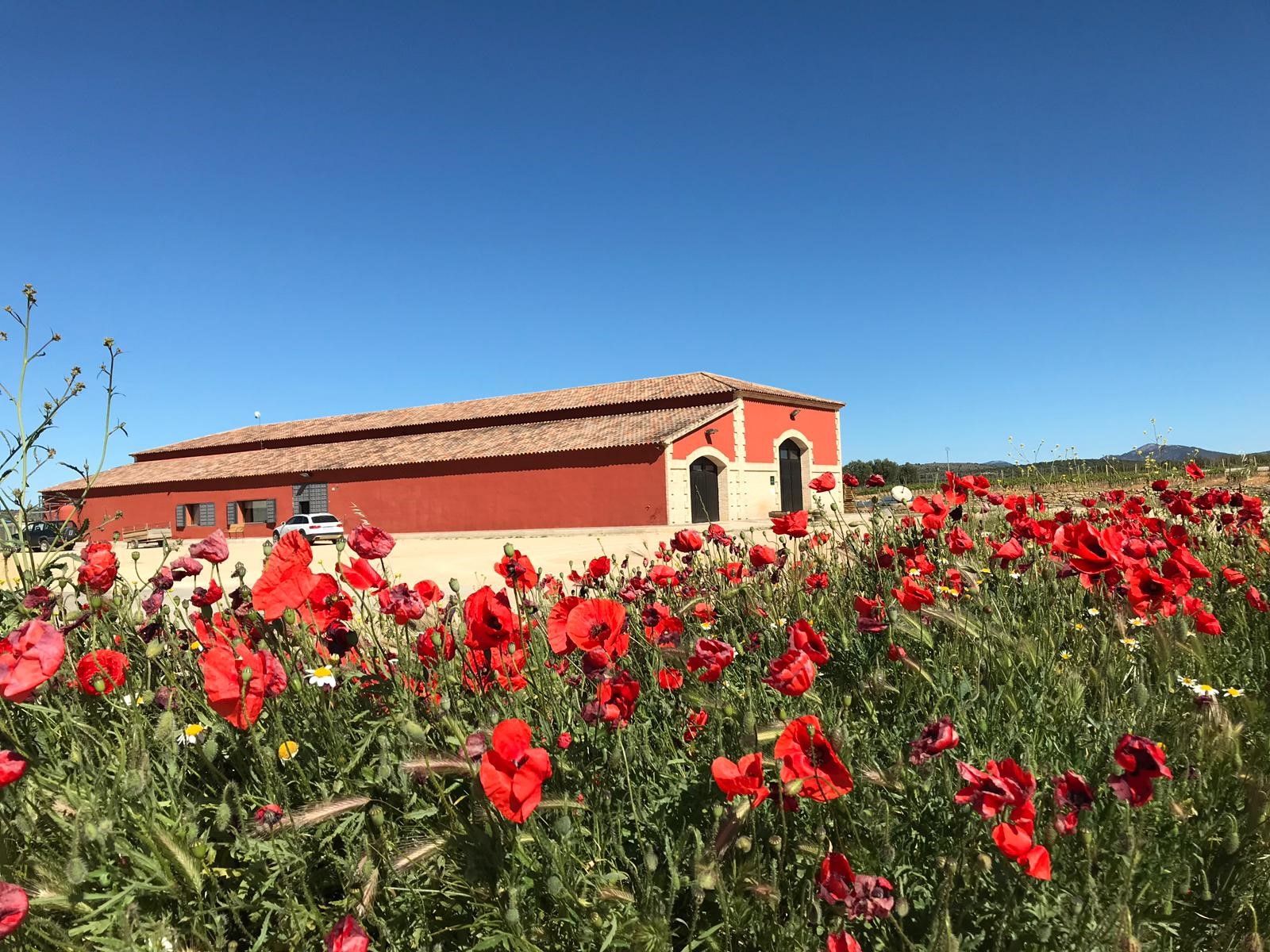Today nearly one in five vineyards in Spain (18%) are farmed organically, according to statistics from the Ministry of Agriculture, Fisheries and food (MAPA) making it a pioneer in the field. But back in 1998 when Rosalia Molina and her husband Manuel Garrotte bought some land in Manchuela 90 miles west of Valencia, and established Bodegas Altolandon, she was dismissed by the local winemaking community as a bit of a hippie, and the “mad organic wine lady”, in the words of her long-time friend and export manager of nearly 10 years, Carmen Sebastian, who joined the winery in 2016.
“Back then people thought I was making life difficult for myself by deciding to grow our vines organically,” recalls Molina who worked in several bodegas in the Manchuela region, gaining experience in both the cellar and vineyard before establishing Altolandon.
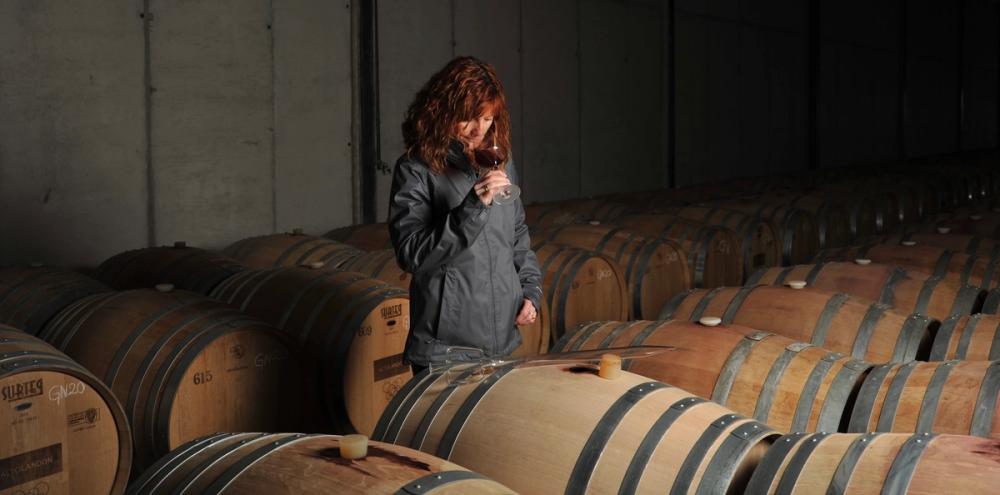
Rosalia Molina was determined to make organic wine in the 1990s when it was unfashionable to do so
“But to be honest, growing vines at such a high altitude gives us several advantages. It is much cooler than other vineyards at lower altitudes, and that, combined with low rainfall and wind means that mould is less of a problem for us, making it easier to grow our grapes organically and with little intervention.”
The site for the original vineyard was Landete in the province of Cuenca, and deliberately chosen for its altitude, as well as its soil, temperature variation of hot days and cool nights, its clean air and remoteness, with terroir that would allow the wines to express their freshness and natural acidity. Manuel also had close family ties to the region which helped in the acquisition of the land and setting up the estate from scratch.
At 1,100 metres above sea level, Altolandon is one of Spain’s highest altitude wineries with temperatures plummeting to as low as minus 17 degrees centigrade in the winter, and with up to 20 degrees difference in the temperature between day and night. It is this large diurnal range which encourages even ripening of the grapes and helps to retain their natural acidity.
On the edge
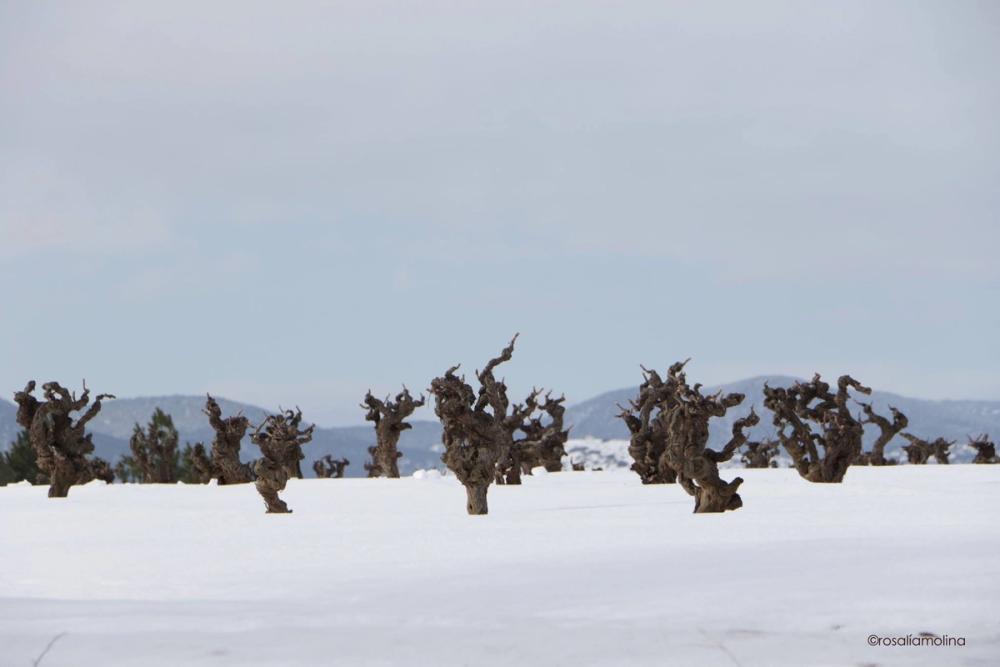
Conditions in the vineyard of Altolandan are severe with heavy snow a frequent issue in the winter
“This is viticulture on the edge of what is possible,” claims Carmen Sebastian.
The grapes are hand harvested as late as possible, and never before October 12, although this is now up to 10 days earlier than was the case 20-odd years ago thanks to climate change. The grapes are then vinified as naturally as possible with native yeasts and minimal intervention, while the wines are aged in clay amphorae and some in French oak to supply the necessary texture and complexity.
One of the biggest challenges presented by global warming, says Molina, is that the grapes ripen much faster.
“It’s all too easy to produce a wine that is really alcoholic without the acidity, and you don’t achieve the right balance.”
The vineyards sit on a north -south axis and are surrounded by mountains and situated on a flat plain. Not only are the vineyards which cover 200 hectares, organic, but are also farmed sustainably and biodynamically with vines cordon-trained and spur-pruned. Employing only natural fertilisers the vineyard promotes diversity by allowing the sheep, pigs and chickens from the local farm to roam and graze freely.
The first grapes grown by Molina were Syrah, followed by Malbec and Pinot Noir, and the vineyard expanded organically over the years as the couple increased the size of their holding and progressively acquired old vines including Grenache and Bobal, some of which are over 75 years old.
They also planted around 50% of the land with international grape varieties, including Pinot Noir, Chardonnay and Viognier.
They now produce over 20 different varieties, and are forever experimenting with new varietals and styles, including Albariño and Tourigo Nacional - with varying degrees of success.
“At the beginning we tried growing Cabernet Sauvignon, but even though it is widely grown in our region, I just didn’t like the wine,” says Molina, “so we abandoned that. The same with Tempranillo – we tried planting that too, but I wasn’t happy with it.”
Now the vineyards are split pretty evenly between red and white varietals.
Ice wine

The Dulce Enero Ice Wine which has a normal RRP of £24.49 is currently available for £19.99 on promotion through UK distributor Alliance Wine
A standout success has been the Bodegas Altolandon Dulce Enero Ice Wine, created by what turned out to be a very fortunate accident.
“One year we forgot to harvest some vines, and I realised the grapes were frozen solid. That’s when we decided to make the best of the situation and turn it into ice wine,” says Molina.
Their first vintage, made from the Petit Manseng grapes was in 2000 and is now becoming ever more popular with demand increasing year on year.
“A lot of Michelin-star restaurants are beginning to take an interest and get on board, which helps to raise awareness,” points out export manager, Carmen Sebastian.
And it remains the only “real” ice wine produced in Spain, according to Rosalia with others on the market made with grapes frozen in the winery, and not on the vine which she says produces an inferior product.
“Picking the grapes when they are frozen in January means they contain plenty of sugar, but if they are picked earlier, wineries have to add sugar, making a less natural product, and that affects the taste of the wine – it’s totally different. We produce a natural sweet wine,” says Molina.
However, the wine can only be produced in exceptional years when the weather conditions are just right – namely, the temperature has to remain below minus five degrees centigrade for at least five days, but never below minus 13 before the grapes can be picked.
The ice crystals in the grapes result in the sugars becoming heavily concentrated in the must, with plenty of acidity remaining. The dehydration improves the extraction of aromatic components, and fermentation is slow, taking up to two to three months, carried out in small stainless steel tanks to produce a completely natural wine with no oak ageing.
"Ice wine is becoming increasingly fashionable,” confirms Molina. “We are selling more and more of it. And we are the only winery in Spain producing real ice wine.”

Mil Historias Bobal normally has a RRP of £16.75 and is currently on promotion for £14.75 through Alliance Wine
While ice wine remains a relatively niche product, with limited production volumes, one of Altolandon’s best sellers is its Mil Historias Bobal, made with 100% Bobal grapes. While it is aged in French oak for around four months, the oak is not dominant in the tasting.“It’s not oaky at all, but intense, fruity and fresh with a gentle tannic finish,” explains Sebastian.
Export success
Altolandon now produces around 200,000 bottles of wine a year in total and only keeps around 30% of its annual grape harvest to make its own wines, selling some to other wine producers.Of the remainder, the vast bulk - around 90% - is exported overseas, with Canada being the biggest overall market, closely followed by the UK and then the US.
Alliance Wine is Altolandon’s first and only UK distributor and they have been working together since 2018.
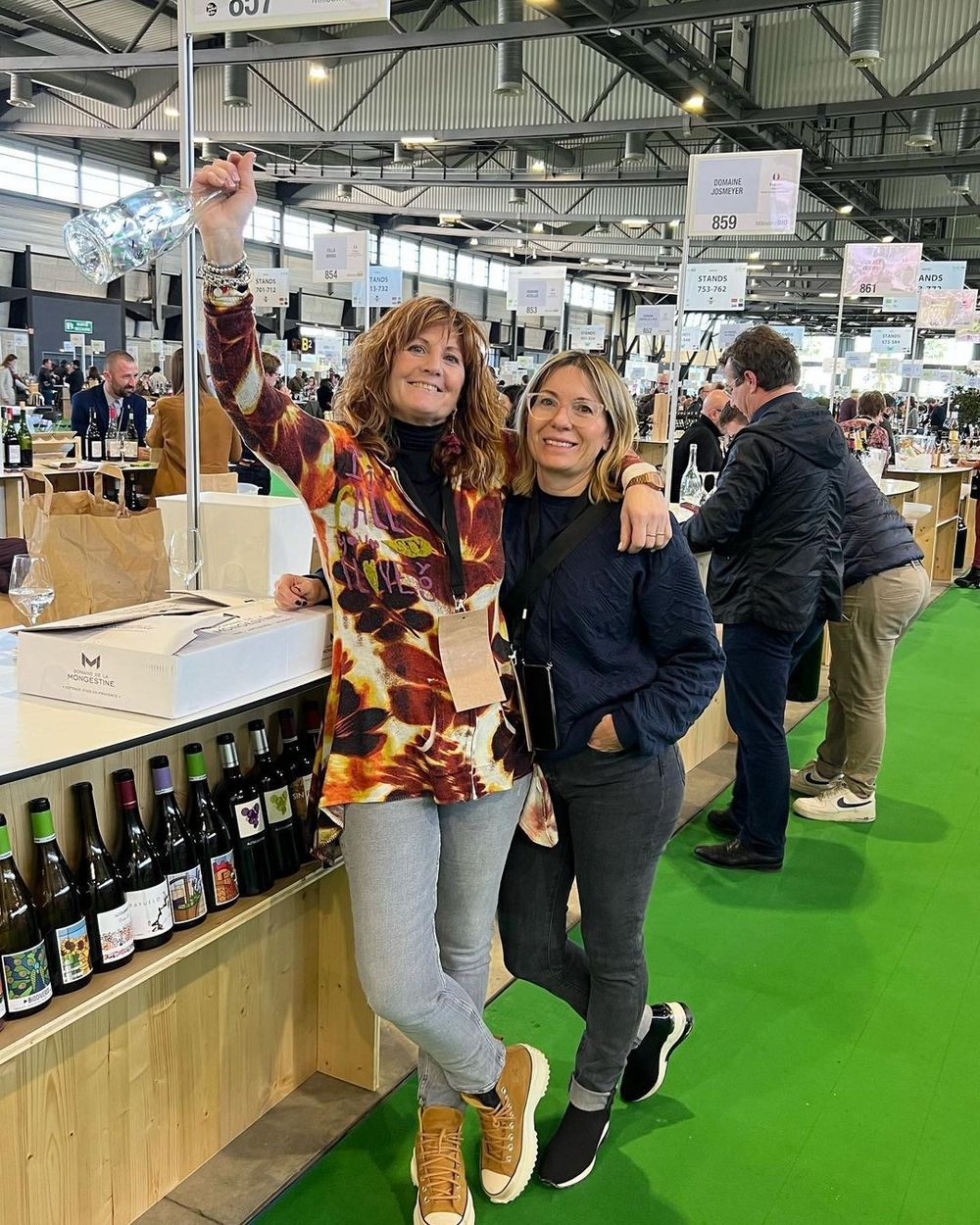
Altolandan has been working with Alliance Wine in the UK since 2018
“Brexit was a bit of a headache to deal with,” she adds. “However, we are really happy with how things are going in the UK, and happy for the market to grow little by little. Most of our wines are sold in the on-trade, but there is some in the off-trade too.”
She says that fresh and fruity wines and local varieties are trending in the UK with demand for organic and natural wines growing exponentially. Malbec and orange wine are also particularly popular amongst UK consumers, as well as the Altolandon White, which is produced from 100% Chardonnay grapes.
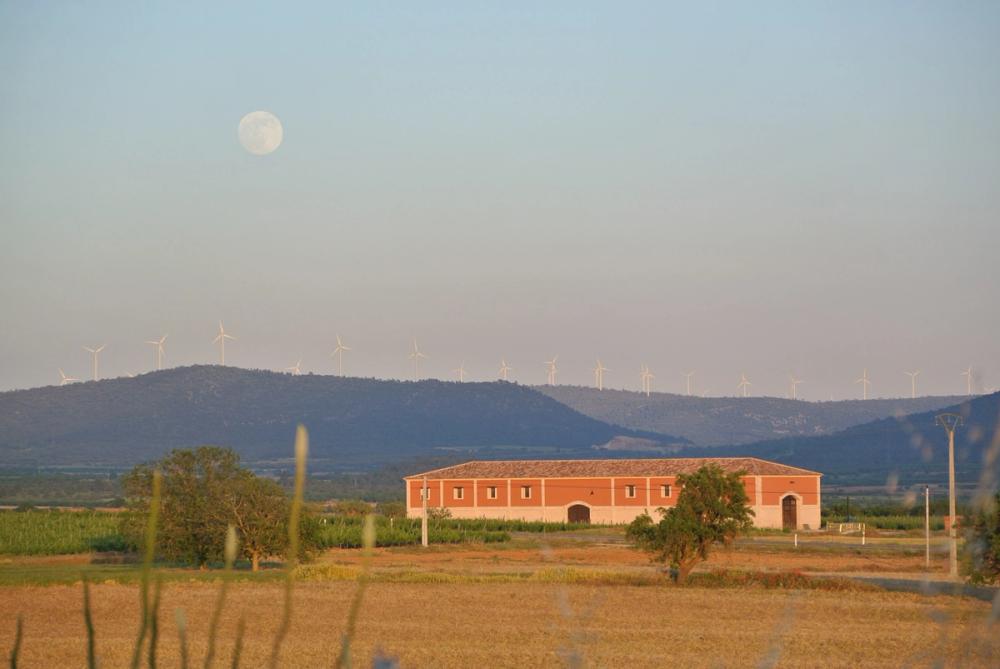
Altolandan is making good progress in expanding its export market around the world
Russia and Japan are other growing markets, while China which had been booming has seen a recent slow-down. As for markets with the most potential, Sebastian believes that India remains largely untapped, and it is to the vast subcontinent where she believes that much future growth lies.
“India is a completely new market for us, and really unknown, but everyone tells us that it is virtually untapped, so we have our sights set there for next year.”
And in addition to new overseas opportunities, closer to home Molina has big plans for muscling into the growing wine tourism market.
“Next year we’ll be opening a new tasting facility right in the heart of the vineyards, designed to welcome more visitors and give them a truly authentic experience,” she says. “It’s time for us to open up a little more and create something we can proudly share with people.”
* You can find out more about Altolandan and its wines at its website here.
* Alliance Wine is a commercial partner to The Buyer. Click here to find out more about the services they provide.
